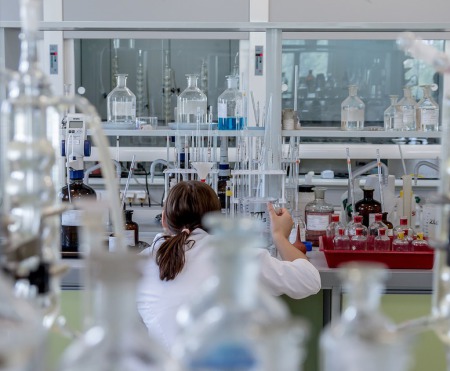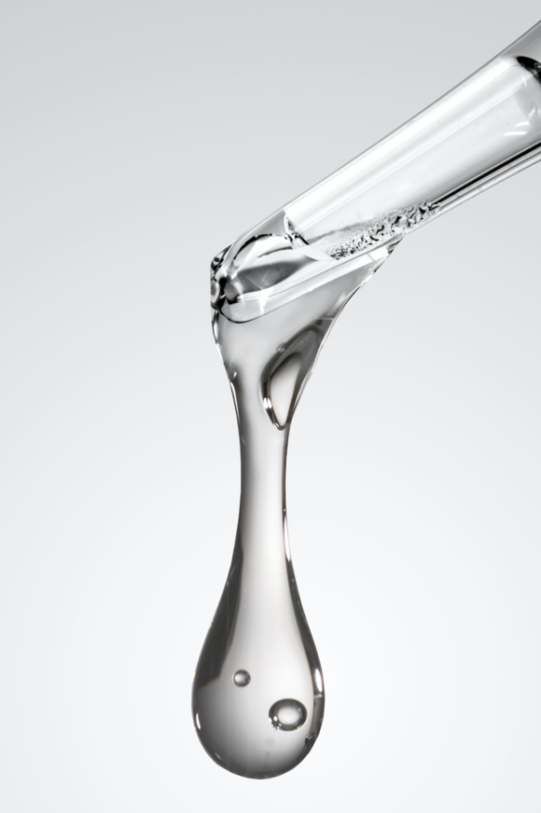Hyaluronic Acid
Description: Hyaluronic acid is a natural polysaccharide (large sugar molecule) that occurs in various tissues (skin, synovial fluids of joints, connective tissues). Responsible for tissue hydration, lubrication, & tissue stability, holds 500 times its own weight of water. White powder, no odor. Molecular weight 700-1500 Da. Soluble in water. ph 5-8.5 in 5% aqueous solution. Shelf-life up to 3 years if stored protected from humidity and microbial contamination.
CAS: 9067-32-7
INCI Name: Sodium Hyaluronate
- Most powerful moisturizer and humectant available
- Provides smoothness and softening to the skin
- Can reduce the appearance of wrinkles
- Ideal ingredient after skin peels
Uses: Typically used at 0.1-2%. Hyaluronic acid is not readily soluble in water as it binds water very quickly forming a gel. Hyaluronic acid needs to be carefully sprinkled into the water under constant high-speed stirring (preferably with a hand mixer or vortex mixer). The mixture starts then thickening quickly and becomes a gel. At the point no additional hyaluronic acid can be added as there is no water left for hyaluronic acid to be dissolved in (additional hyaluronic acid would only form lumps).
Applicattions: Hydrating gels, moisturizing creams & lotions, anti-aging & anti-wrinkle products, pre/after sun lotions, protecting / nourishing & moisturizing skin care products, products for sensitive or dry skin.
Origin: (ISO certified factory) EU
Raw Material Source: Glucose, soy peptone and yeast extract
Manufactured: Hyaluronic acid is produced biotechnologically through microbial fermentation with the aid of yeast extract and peptones and serums.
Animal Testing: Not Tested in Animals
OMG: GMO-free
Vegan: No animal derivated compounds.
Cofa_Specs_Hyaluronic Acid Sodium Salt ([...]
Documento Adobe Acrobat [551.8 KB]
Hyaluronic Acid
What is hyaluronic acid?
Hyaluronic acid is a naturally-occurring sugar molecule.
It can be used in Food supplements, skincare ingredients and in injectables, but it's also found in the body as one of the agents that helps to make collagen. So the collagen in your skin and joints is composed partly of hyaluronic acid, plus protein.
What do we use hyaluronic acid for?
"Its main use in skin creams is as a humectant - which is one of the agents that's able to hold moisture on the skin's surface.It can actually hold up to 1000 times its weight in moisture! So it's a really good hydrator of the skin.
Can anybody use it?
Hyaluronic acid is a really great product no matter your skin type - in the winter, many people find their skin surface becomes a little dull or flaky, and that's because the outer skin cells are drying out in the colder weather. Those who've been on sunny holidays might also find their skin becomes dry - it's these situations where humectants like hyaluronic acid are particularly useful as they smooth the skin surface, hydrate those skin cells and restore that healthy glow to the skin.


